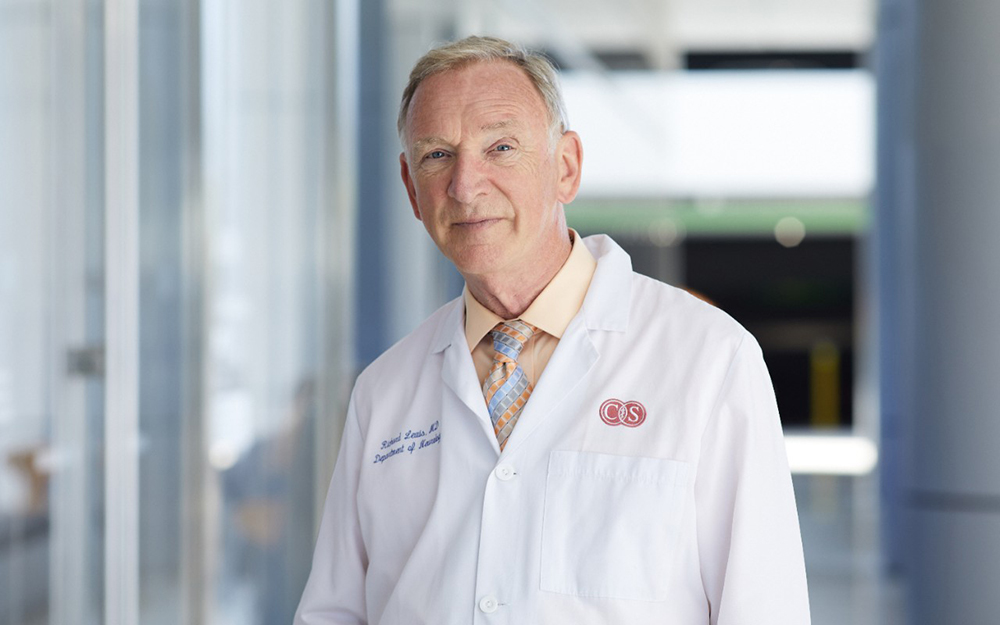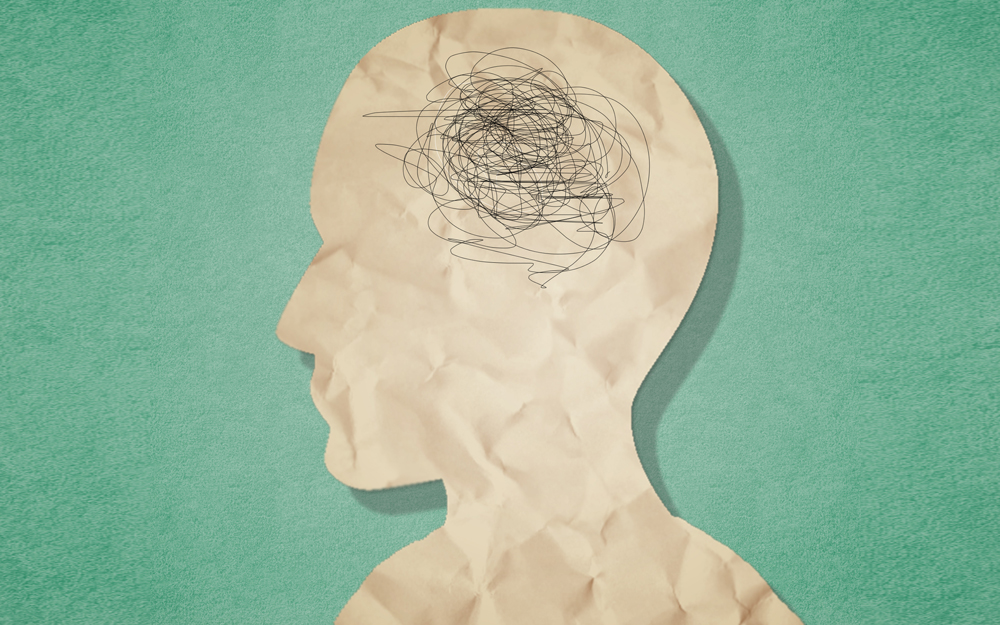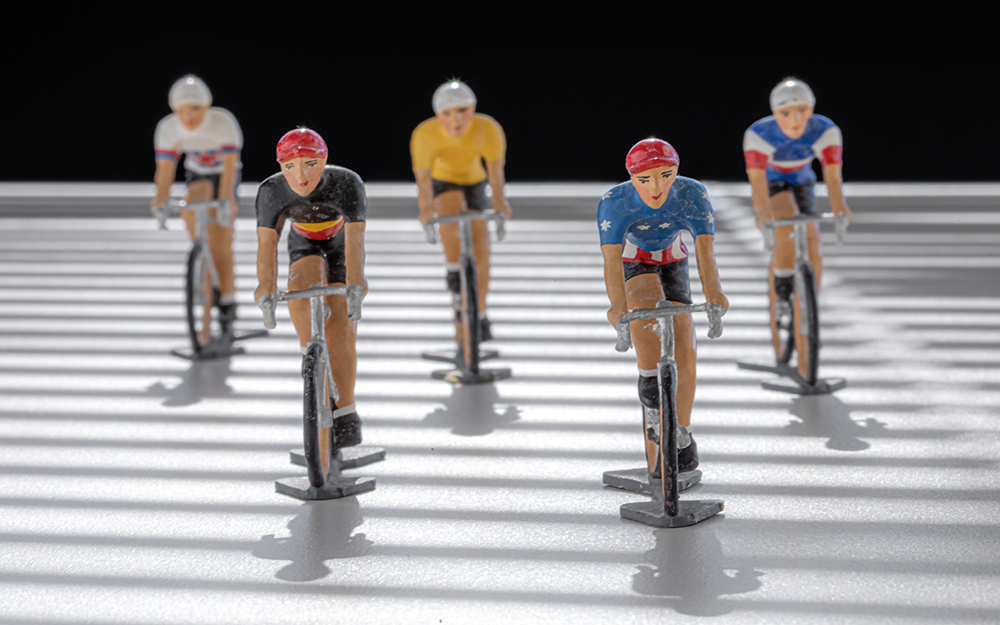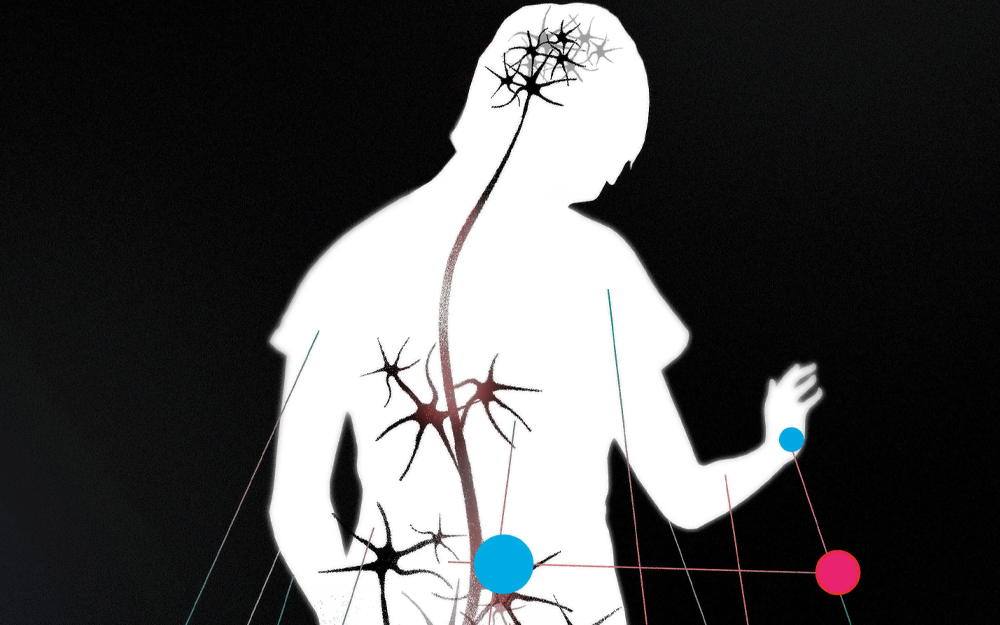Medical providers featured in this article
In Brief
{{cta-block}}
There is no cure for amyotrophic lateral sclerosis (ALS), a usually fatal neurodegenerative disease that mainly strikes when a person is between 40 and 70 years old. Patients with ALS become slowly paralyzed when they lose motor neurons that control movement—but scientists don't yet understand what causes the neurons to die.
Existing treatments only extend lifespans by a few months and very few are on the market—the first ALS drug was approved by the Food and Drug Administration in 1995, and a second became available only 22 years later. So at Cedars-Sinai's weekly ALS Clinic, care focuses on diagnosis, symptom management and providing optimal support for patients and their families.
Every three months, a team of physicians, therapists, a social worker and other specialists evaluate patients' evolving needs and equip them with new machines, medicines or services to maintain and improve their quality of life.
But investigators are inching toward a greater understanding of the disease, made possible by ALS patients who take an active role in research. The ALS Clinic at Cedars-Sinai is running 13 ongoing trials involving about 170 patients, including studies into stem cell therapy.
One approach pioneered at Cedars-Sinai is the latest project in a line of study that has been ongoing for 12 years. In a new trial, a surgeon will transplant neural stem cells modified to release a powerful growth factor that can protect motor neurons directly into the brain of patients with ALS.
A previous study showed that these cells can be safely transplanted into the spinal cords of patients. As a secondary outcome, clinicians will be able to monitor patients' hand movements to determine whether the stem cells can slow down neuron death and help maintain that movement over time.
Investigators say the potential to find new treatments for ALS depends largely on the generosity and trust of patients in clinical trials—patients say the trials act as balm even when they know the study will not cure the disease. Here, people who live and work with ALS share what drives them to continue seeking solutions despite decades of only incremental progress.
ALS Clinic physician, principal investigator of the new stem cell trial
"The 16 patients we hope to enroll in the new study are the heroes of ALS research—they know we aren't going to cure their disease, and they're allowing us to operate on them and put them on immunosuppressive drugs for a year just to help us understand whether this approach is safe. The reason for doing this is only because they agree that this is an important medical and scientific question that can lead to treatments for other people.
If we can show that these stem cells can safely be transplanted into key regions of the brain that control hand movement, that would be a huge step and allow us to move forward in larger trials. While there is a very small chance of converting this into a therapy for those who currently have the disease, it is paving the way for the future of stem cell trials."
ALS clinical trial coordinator
"ALS is highly debilitating, and without any effective treatments, clinical trials are the main source of hope for our patients. We always try to set realistic expectations when we enroll patients in trials: Even if previous data shows promising results, we don't know if the same results will translate to people, and nothing is guaranteed.
But discovery is really exciting in general—because there's so much we don't know about ALS, any new discovery is great news. Sometimes, not getting the positive outcome you wanted from a trial may tell you something else—we collect a large amount of data, and anything we can learn as we are testing different treatments is good.
It's exciting to think about getting closer to understanding the root cause of ALS—we can't design effective treatments without knowing what to target. I really admire our patients who realize that they may not directly benefit, but are willing to contribute to ALS research and a cure for future generations.
Participating in a clinical trial is a lot of work, and we really couldn’t do it without our generous, committed and altruistic patients. By working with them, we can make a positive impact in the last few years of their lives by reiterating to them how important they are."
ALS patient and clinic trial participant
"When I got my confirmed diagnosis in May 2020, it was a bit of a slap in the face—it's a tough diagnosis to get out of the blue, and a tough disease to live with—but I think you can choose to be as positive as possible.
I used to be very active, and I'm not anymore, so that's tough, but I'm really glad I did as much as I did during my first 61 years. I'm in a wheelchair most of the time, and I use a BiPAP machine both at night and periodically during the day to give my lungs a break—one of the areas where I've been compromised is respiratory strength.
But I'm grateful I still can speak, eat and swallow. I'm also really lucky that I've got great support from my family—my wife Adrienne and our two daughters, Nikki and Corrine, are remarkable.
If I can be a very, very small link in that long chain toward finding answers about ALS, that's great. It's something I feel I can be proud of and grateful for.
Initially, I was referred to another highly regarded ALS clinic, but I really wanted to go where there was the most opportunity to participate in research, so I decided to come to Cedars-Sinai. After several months—the delay was partly due to COVID-19—I was able to enroll in a trial testing a variety of potential therapeutics.
Every month or two, I come to the medical center for what amounts to a pretty full day. They regularly collect blood and urine and I've done a couple spinal taps. I do EKGs, strength tests with different muscle groups, speech assessments and tests to assess pulmonary function that are very fatiguing.
But it's good to be engaged: It's a pretty bad disease, and there's not a lot out there that provides a whole lot of hope. It makes me feel better to be contributing to the research community's efforts to try to find some solutions.
I don't have any sort of magical thinking, but I like to think I'm participating in the science. Maybe there will be some overnight cure—that would be awesome—but I'm certainly not expecting that. If I can be a very, very small link in that long chain toward finding answers about ALS, that's great. It's something I feel I can be proud of and grateful for."
Executive director of the Board of Governors Regenerative Medicine Institute, who initiated the stem cell trials
"This is a tough disease with very rapid progression—it's very difficult to move the needle. In cancer, we can see a tumor growing, cut it out and develop drugs to target the division of cells. In ALS and other neurodegenerative diseases, it's frustrating—when we don't know why neurons are dying, how do we develop drugs?
But the rationale behind the new trial is very solid and based on over 15 years of work from my laboratory. We may eventually have a chance of slowing this disease. If it is safe, we can move to a larger trial with more patients. If it is not, we will keep innovating and test other approaches—and never stop trying to help patients with ALS."






